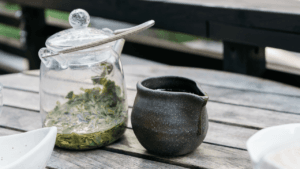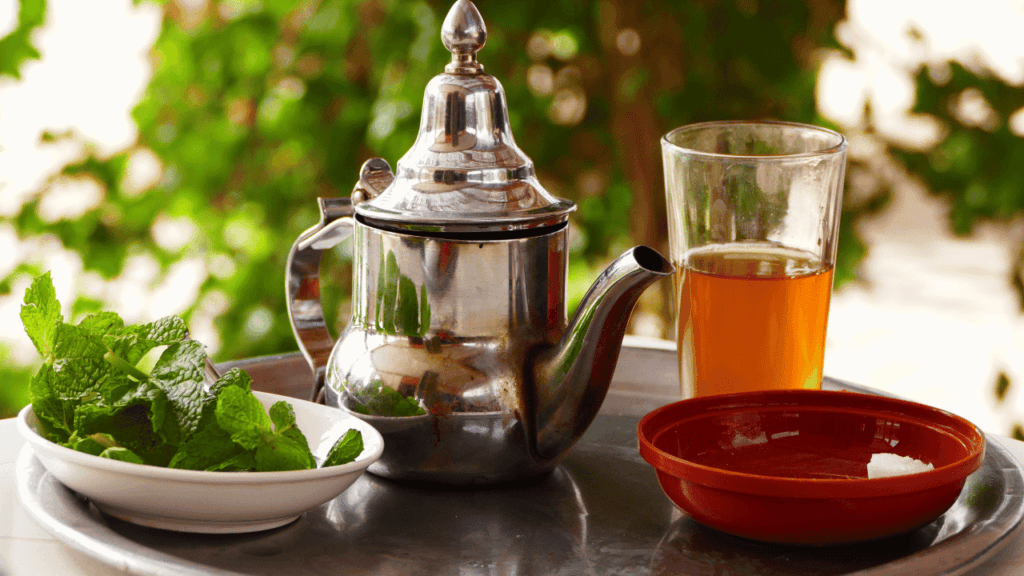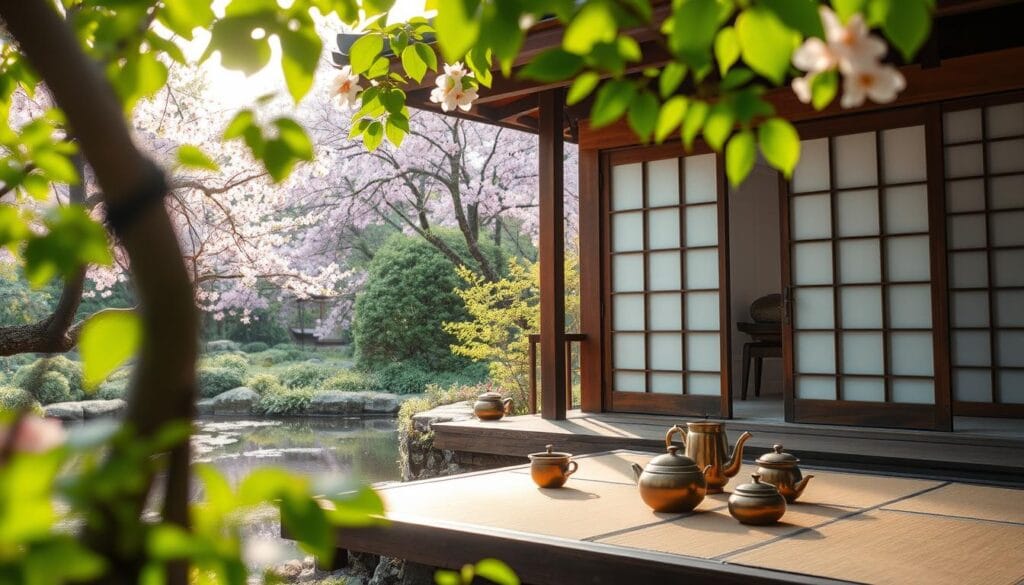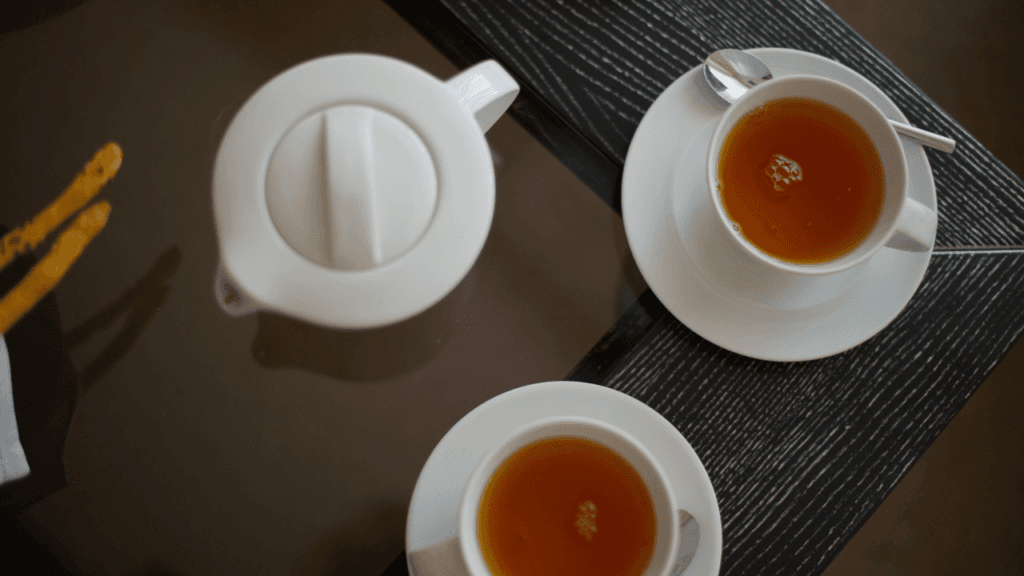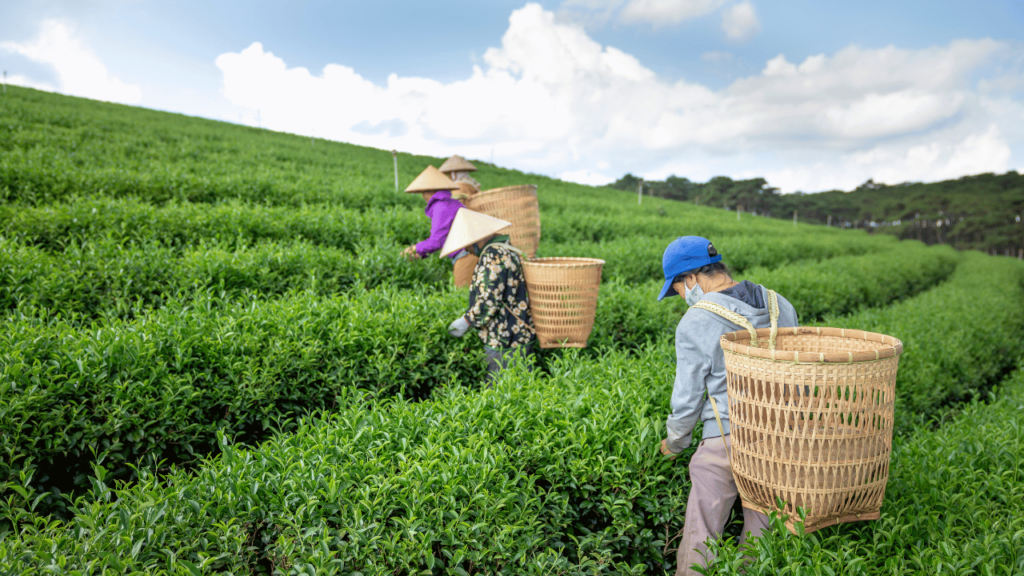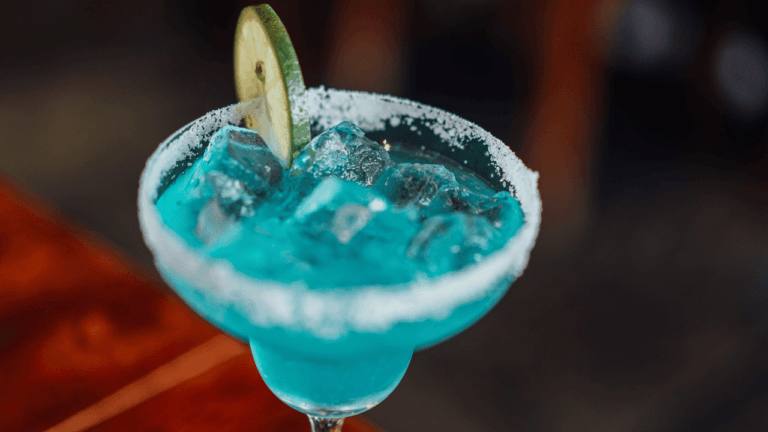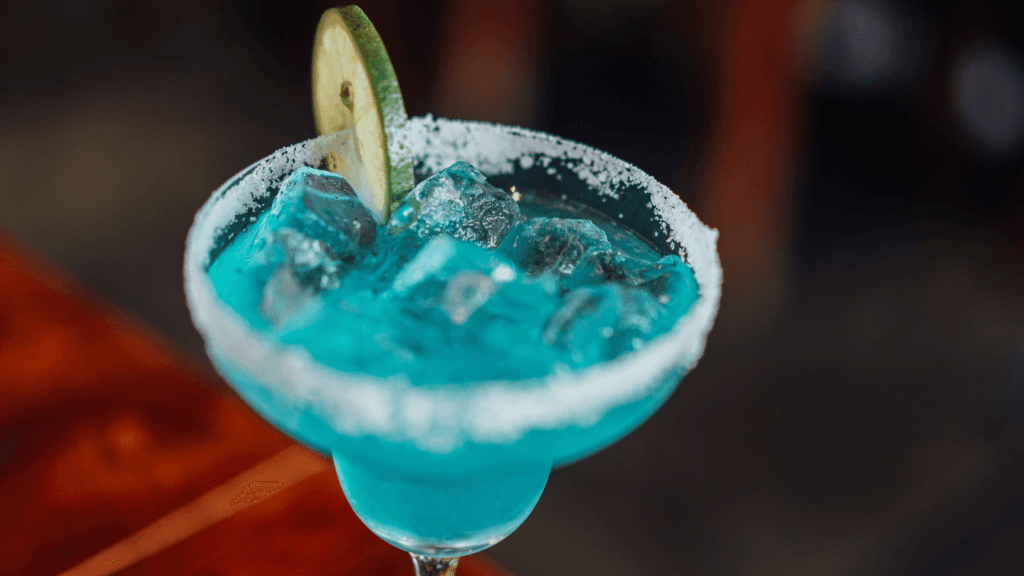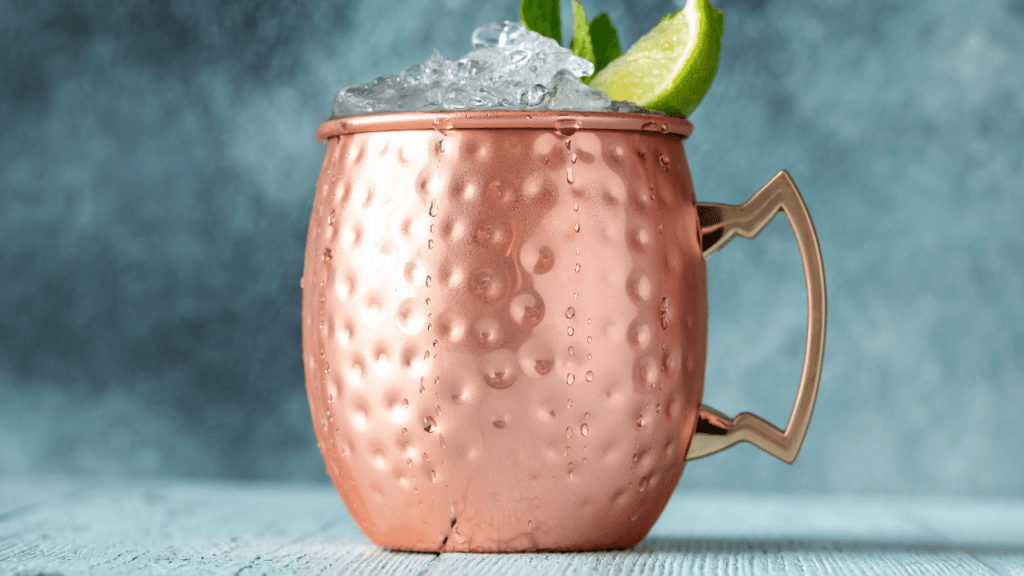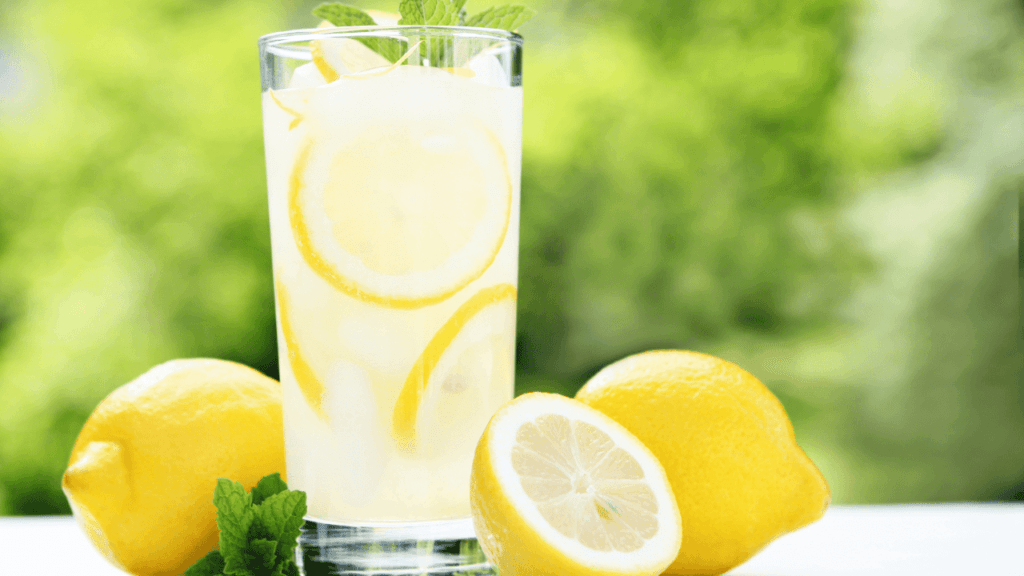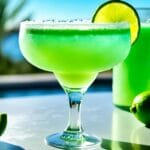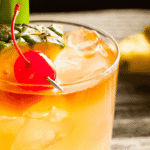Step into a world of ancient traditions and mindfulness with Tokyo tea. This centuries-old practice shows Japan’s elegance. As you explore Tokyo, immerse yourself in Japanese tea culture at sites like Asakusa Chazen and Gencho-an Tearoom.
These tea ceremonies offer a peaceful escape from Tokyo’s hustle. You can connect with Japan’s rich cultural heritage. For example, the Yanaka neighborhood tea ceremony has been around for 100 years.
During your tea ceremony, you’ll choose a beautiful antique tea bowl for green tea. Some bowls are 250-300 years old. Ceremonies last from 30 minutes to 1 hour for small groups.
The ceremony uses matcha, a powdered green tea. The top 2 leaves from the first harvest are the best. In the late 1500s, Kyoto’s green tea was more valuable than gold.
You’ll also enjoy traditional Japanese sweets, or wagashi. These sweets are themed for the season. You might even make mochi hydrangeas, a sweet rice cake, during the summer rainy season.
Key Takeaways
- Experience authentic Japanese tea culture at officially recognized cultural heritage sites in Tokyo Tea
- Immerse yourself in centuries-old traditions and mindfulness through tea ceremonies
- Select antique tea bowls dating back 250-300 years for a truly unique experience
- Enjoy the highest quality matcha green tea, once considered more precious than gold
- Savor traditional Japanese sweets, or wagashi, themed for the current season
The Rich History of Tea in Tokyo
Tokyo’s tea history is a long and interesting story. The first records of tea in Japan were in the 8th century. This was during the Nara period. Diplomats from China brought tea knowledge, which became a big part of Japanese life.
Tea grew from a luxury to something everyone enjoyed. By the 18th century, tea was everywhere. The creation of sencha green tea led to many new tea styles. These styles are now very popular in Japan.
Early Beginnings of Tea Cultivation
Monk Eisai made tea popular in Japan in the 12th century. He also started the Rinzai school of Buddhism. Monks used tea in their meditation, making it a big part of Japanese culture.
Tea competitions, or tōcha, started in the 14th century. They focused on finding the best teas from different places.
The Impact of Zen Buddhism
The Japanese tea culture, or “sado,” comes from Zen Buddhism. The chanoyu tea ceremony is all about harmony and respect. It’s more than just drinking tea; it’s a ritual that includes art and philosophy.
“Tea is nought but this: first you heat the water, then you make the tea. Then you drink it properly. That is all you need to know.” – Sen no Rikyū, renowned tea master
Even with industrial changes, Tokyo’s tea culture kept growing. Today, Japan has many teas with different tastes. This offers a rich experience for tea lovers around the world.
Types of Tokyo Tea and Their Unique Flavors
Tokyo is famous for its wide range of teas. Each type has its own taste and cultural importance. From matcha’s bright green to hojicha’s nutty flavor, Tokyo’s tea scene is a journey for the senses.
Japanese green tea is a favorite, with sencha being the most popular. It’s known for its light, sweet taste. Sencha is grown in many places in Japan, with Shizuoka leading the way.
Matcha: The Heart of Japanese Tea Culture
Matcha is a special tea in Tokyo. It’s a finely ground powder from shaded leaves. Used in tea ceremonies, it’s loved for its green color, rich taste, and health benefits.
Sencha: A Refreshing Delight
Sencha is a common Japanese green tea. It’s known for its light, sweet taste. Tokyo loves it for its refreshing flavor and health perks.
“Sencha embodies the essence of Tokyo’s tea culture—a perfect blend of tradition, refreshment, and everyday enjoyment.”
Hojicha: The Comfort Brew
Hojicha is a roasted green tea from Kyoto. It’s now popular in Tokyo for its comforting taste. It has a low caffeine level and a smooth, sweet flavor.
Other teas in Tokyo include gyokuro and genmaicha. Gyokuro is a rich, umami tea. Genmaicha adds a nutty taste with roasted brown rice.
The Art of Tea Preparation in Tokyo Tea
In Tokyo’s heart, tea preparation is a treasured tradition. It’s a mix of old rituals and new ideas. This makes it special for both locals and visitors.
The traditional japanese tea ceremony shows Japan’s culture. Tokyo has many places for real tea ceremonies. Asakusa Chazen offers a shared seat ceremony for 3,500 yen ($23) or a private one for 4,500 yen ($30).
The Gencho-an Tearoom, inside a museum, has a ceremony for 1,200 yen ($8) plus museum entry.
Modern Innovations in Brewing
Tokyo’s tea scene also has new brewing techniques. Hoshinoya Tokyo, a luxury hotel, offers a modern tea ceremony. It costs 14,271 yen ($94) for up to six people. This shows how tea preparation is changing in the city.
Tools and Utensils Used
The tools and utensils are key in tea preparation. Essential tea utensils include:
- Chasen: A bamboo whisk for powdered matcha tea
- Chashaku: A bamboo scoop for matcha powder
- Teapots and cups with unique designs
“The tea ceremony is considered one of the three classical arts of Japanese refinement and has been traced back to Zen Buddhism in the year 815.”
Shizu Kokoro offers a tea ceremony workshop for 4,200 yen ($28) shared or 27,720 yen ($182) private. Maikoya provides an experience for 6,300 yen ($41) per person, with a free kimono rental.
Tokyo Tea Houses Hidden Gems
In Tokyo, a world of hidden gem tea houses awaits. These places show off Japan’s rich culture. From old teahouses to modern spots, Tokyo’s tea scene is full of surprises.
The Kosoan tea house in Jiyugaoka is a historic gem. It’s in a 100-year-old Japanese house, just a 7-minute walk from Jiyugaoka station. It’s open from 11:30 a.m. to 6:30 p.m. (except Wednesdays).
At Kosoan, you can enjoy traditional matcha tea and wagashi desserts. Try the Kosoan Style Matcha Shiratama Zensai or anmitsu with fresh fruit. It feels like stepping back into Edo-period Kyoto.
Exploring Historic Teahouses
Tokyo’s historic teahouses take you back in time. They show the beauty of Japanese tea culture. The Zangetsu tea house at Chinzanso is a must-see.
It’s modeled after Sen no Rikyu’s tea house. Here, you can see the art of tea making. The gardens are also breathtaking.
Contemporary Tea Spots
Tokyo also loves new things. Modern tea spots like Tokyo Saryo mix tradition with modernity. They offer unique tea and food pairings in stylish settings.
For tea lovers, Tokyo has many shops and markets. You can find everything from teaware to beauty products. It’s a treasure hunt for tea enthusiasts.
“In Tokyo, every sip of tea is a journey through history and a celebration of the present.”
Whether it’s an old teahouse or a modern bar, Tokyo’s tea scene is unforgettable. So, when you’re in Tokyo, explore these hidden gems. Dive into the world of Tokyo tea.
Pairing Tokyo Tea with Local Cuisine
Exploring the bond between Tokyo tea and local food is key to understanding Japan’s rich food culture. The art of tokyo tea pairings has grown over centuries. It combines traditional snacks with new culinary ideas to make tea drinking special.
Japan’s food history goes back to the 12th century. It started with the “one soup, three sides” style in Five Great Zen Temples. This led to many dishes that match well with Japanese tea.
Traditional Snacks that Complement Tea
In traditional tea ceremonies, wagashi sweets are given to balance matcha’s bitterness. These sweets, made from red bean paste, mochi, and chestnuts, are designed to improve the tea experience. Other snacks that go well with tea include:
- Onigiri: A common dish found at gas stations and vending machines.
- Tempura: A favorite dish that needs careful frying to get the right texture.
- Yakitori: Grilled chicken skewers that match well with hojicha, a roasted Japanese tea.
Innovative Culinary Pairings
Today, tea shops are trying new food pairings to attract modern tastes. For example, matcha-flavored desserts like cheesecake and ice cream are becoming popular. They offer a fresh take on traditional flavors.
Specific green tea and food pairings offer a unique gustatory experience.
Tea expert Per Oscar Brekell teaches workshops on pairing Japanese tea with food. He shows how versatile tokyo tea pairings can be. From the refreshing “Summer Breeze” Sencha with persimmon and tofu to the hearty hojicha with simmered duck stew, there are countless creative pairings.
Sustainable Practices in Tokyo Tea Production
In Tokyo, a quiet revolution is happening in tea production. People are now thinking more about the environment. Tea producers are using sustainable practices to help the planet and the industry.
Organic teas and eco-friendly farming are leading this change. Tea farms in Tokyo are choosing organic methods. They avoid harmful chemicals and use natural options instead.
This approach not only makes teas healthier and tastier. It also helps protect the ecosystems around the farms.
Organic Teas and Eco-Friendly Farming
The move to sustainable tea production comes with its challenges. But the benefits are clear. Organic teas offer a cleaner, more genuine taste.
Teas like gyokuro and hojicha show the skill of Tokyo’s farmers. They grow teas that are full of flavor and rich in taste.
Eco-friendly farming goes beyond the fields. Producers use water-saving methods and renewable energy. This reduces their impact on the environment.
Community Initiatives
Community efforts are also key in promoting sustainable tea. The Tokyo Tea Party is a great example. It brings together farmers, artisans, and consumers to celebrate Japanese tea.
“By connecting people through tea, we can foster a deeper appreciation for the artistry and craftsmanship that goes into every cup. At the same time, we can educate and inspire others to make more conscious choices that support our environment and our communities.”
The Tokyo Tea Party and others host workshops and tastings. They aim to strengthen the tea industry. As more people choose organic and eco-friendly teas, demand will rise. This will drive more innovation and positive change.
Learning Through Tea Workshops in Tokyo
Dive into Tokyo’s tea culture through engaging workshops. They offer a peek into the rich history and traditions of tea. These tokyo tea workshops let you explore Japanese teas and learn from tea masters.
For an authentic tea ceremony experience, visit Asakusa. This historic district has centuries-old tea houses. Here, you can join traditional ceremonies with tea masters.
Authentic Tea Ceremony Experiences
Tokyo has tea ceremonies for all tastes. From historic tea houses to modern spots in Omotesando and Ginza, there’s something for every tea enthusiast.
“The tea ceremony is a way to appreciate the beauty of the present moment and cultivate a sense of mindfulness.”
Hands-On Classes for Tea Enthuasiasts
For those wanting to learn tea preparation, hands-on classes are available in Tokyo. These workshops teach you how to prepare and serve Japanese teas like matcha and sencha. You’ll also learn about tea utensils and ceremony etiquette.
Whether you’re new or experienced, Tokyo’s tea workshops are for everyone. Prices start at ¥5000 during promotions. Start your journey into Tokyo’s tea culture with these educational workshops.
The Global Influence of Tokyo Tea
Tokyo tea has become a worldwide sensation, captivating taste buds and inspiring new trends in the global beverage scene. The unique flavors and meticulous preparation methods of Tokyo tea have garnered international acclaim, with matcha leading the charge in popularity.
From trendy cafes in New York to upscale restaurants in Paris, matcha can be found in a variety of innovative creations, such as lattes, smoothies, and even desserts. The vibrant green hue and delicate umami flavor of matcha have made it a sought-after ingredient among culinary enthusiasts and health-conscious consumers alike.
How Tokyo Tea is Changing the Beverage Scene
The influence of Tokyo tea extends beyond matcha. Other traditional Japanese teas, such as sencha and hojicha, are also making waves in the global beverage scene. The distinct flavor profiles and health benefits associated with these teas have attracted a growing number of enthusiasts worldwide.
Tokyo’s tea culture has inspired a new generation of tea shops and cafes around the world, often incorporating Japanese design and hospitality. These establishments offer a wide range of Japanese tea varieties and brewing methods, creating an immersive experience for customers.
Collaborations with International Chefs
Tokyo tea shops and producers are increasingly collaborating with international chefs and restaurants. These collaborations showcase the versatility of Tokyo tea and introduce new audiences to its unique flavors and cultural significance.
“The collaboration between Tokyo tea masters and international chefs has opened up a world of possibilities for incorporating tea into culinary creations. It’s exciting to see how these partnerships are pushing the boundaries of what we thought was possible with tea.”
From tea-smoked salmon to matcha-infused cocktails, these collaborations demonstrate the limitless possibilities of Tokyo tea in the culinary world. As more chefs and restaurateurs discover the depth and complexity of Tokyo tea, we can expect to see even more creative applications in the future.
The global influence of Tokyo tea is a testament to Japan’s rich cultural heritage and dedication to quality. As the world continues to embrace the unique flavors and traditions of Tokyo tea, it is clear that this beloved beverage will continue to shape the global beverage scene for years to come.
Visiting Tokyo: Must-See Tea Attractions
Tokyo Tea is famous for its lively culture and food scene. It has many tea spots for fans and curious visitors. You can see traditional tea ceremonies and modern tea shops. These places show Japan’s tea culture in both old and new ways.
Ippodo Marunouchi is a top spot for tea lovers. It’s a tea shop with a 300-year history. It opened in Tokyo in 2010, bringing its top teas to the city. GEN GEN AN is another great place, opened in 2017 in Shibuya. It offers new tea styles and flavors, perfect for those who like modern tea.
Popular Tea Festivals in Tokyo
Tokyo’s tea festivals are a great way to dive into tea culture. The Tokyo Tea Festival happens every year. It features tea makers, artists, and fans from all over Japan. You can try different teas, join workshops, and learn how to make tea.
The Ueno Green Tea Festival is another big event. It’s held in Ueno Park and has tea stalls, shows, and activities. It’s a fun way to enjoy tea and Japanese culture.
Iconic Locations for Tea Lovers
Tokyo has special places for a deep tea experience. The Nakamura Tea House is a traditional teahouse in a peaceful garden. It’s a quiet spot away from the city. You can enjoy real tea ceremonies and matcha in a beautiful setting.
The Tokyo Matcha Café is another must-see. It offers a modern twist on tea, with unique matcha drinks and desserts. It’s a stylish place to try something new.

